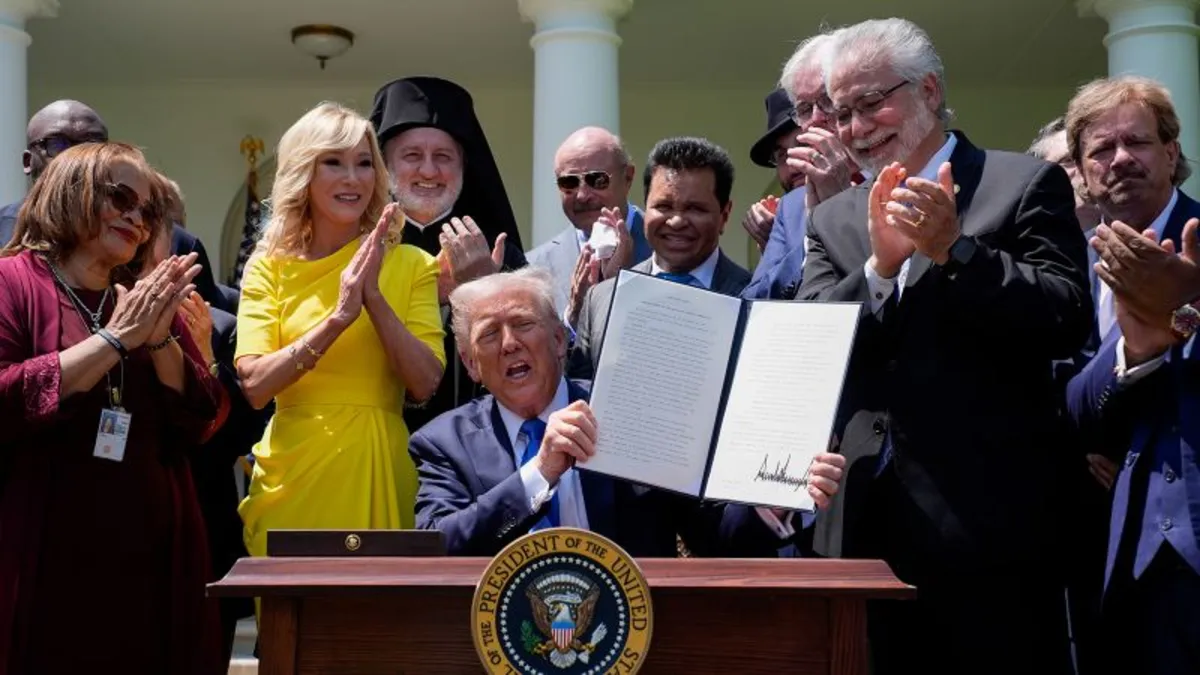
On Thursday, President Donald Trump took a significant step by signing an executive order that aims to end federal funding for America’s two largest public broadcasters, National Public Radio (NPR) and the Public Broadcasting Service (PBS). This directive comes amid ongoing criticisms from the White House and Republican lawmakers, who have accused these organizations of biased reporting.
The executive order instructs the Corporation for Public Broadcasting (CPB) board to terminate direct federal funding for NPR and PBS to the “maximum extent allowed by law” and to refrain from providing future financial support. Furthermore, the order mandates the board to take actions aimed at “minimizing or eliminating” any indirect funding to these prominent public media entities.
In a broader scope, the order also tasks Health and Human Services Secretary Robert F. Kennedy Jr. with investigating NPR and PBS for potential employment discrimination. Additionally, it directs the heads of all federal agencies to actively “identify and terminate” any direct or indirect funding to these media organizations, as permitted by law.
This executive action follows a series of criticisms directed at public broadcasting by the Trump administration and notable Republican figures. Annually, the CPB allocates approximately $535 million in taxpayer funds to support public radio and television stations across the nation. These stations play a crucial role in providing free and universal access to educational programs, emergency alerts, and a diverse array of news and cultural content, including programming from NPR and PBS, along with various lesser-known public media outlets.
The White House has indicated plans to request Congress to retract the funding already allocated to the CPB for the next two years. The repercussions of cutting federal funding could be severe, particularly for local stations in rural areas, many of which are Republican strongholds. According to Ed Ulman, the CEO of Alaska Public Media, “these are the last locally owned broadcasters in these communities.”
Earlier this week, the CPB initiated a lawsuit against the Trump administration following the abrupt termination of three of its five board members via email. These members—Laura G. Ross, Thomas E. Rothman, and Diane Kaplan—were appointed by former President Joe Biden in 2022. Notably, Ross was initially appointed by Trump in 2018 before being reappointed by Biden.
The CPB was established by Congress as a private entity to ensure maximum protection from external interference and control, as stated in legislation passed in 1967. This law explicitly prohibits the government from exercising any “direction, supervision, or control over educational television or radio broadcasting,” highlighting the ongoing tension between governmental authority and public media independence.